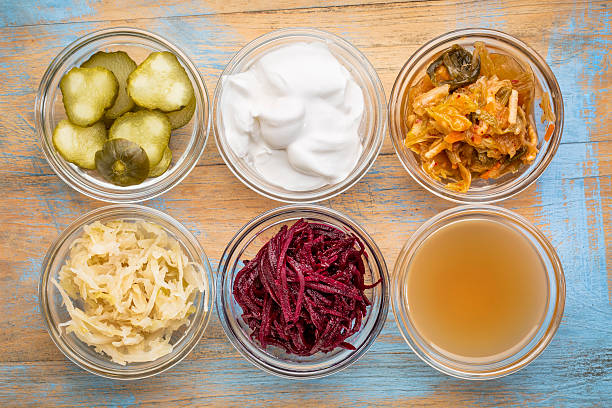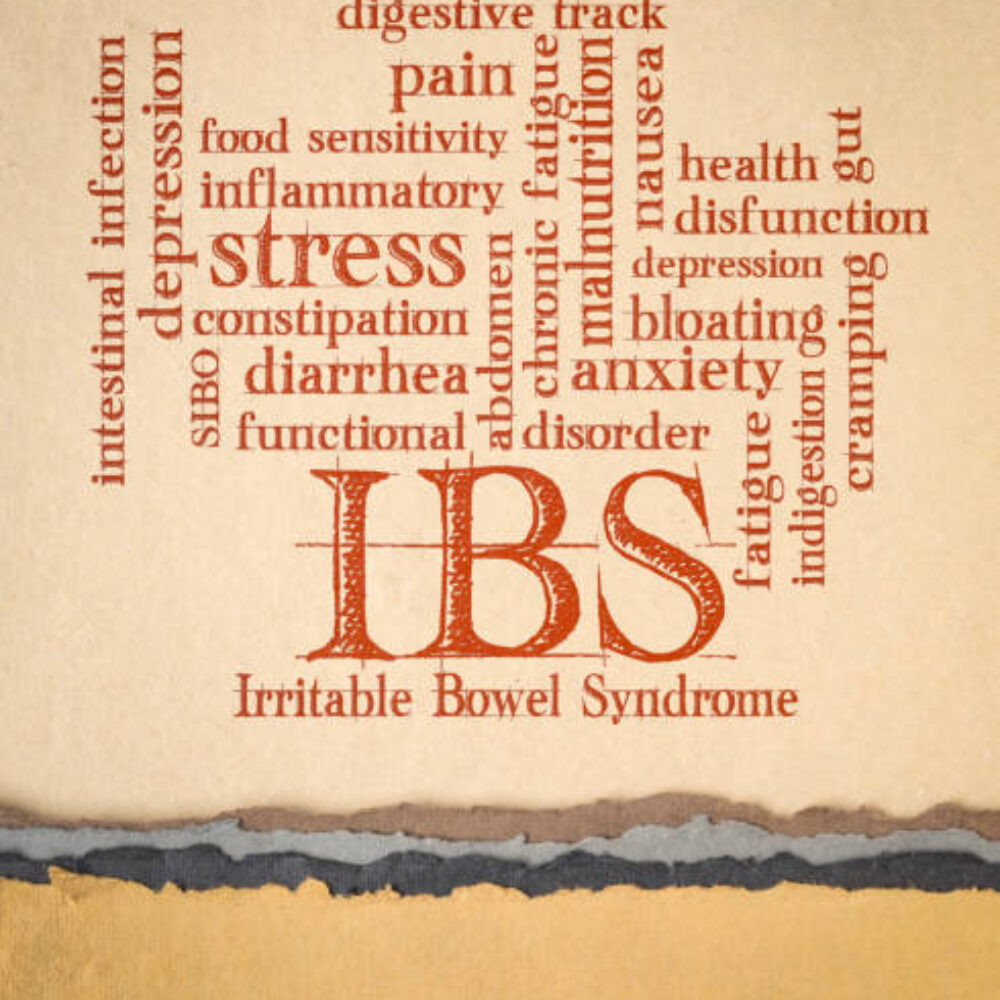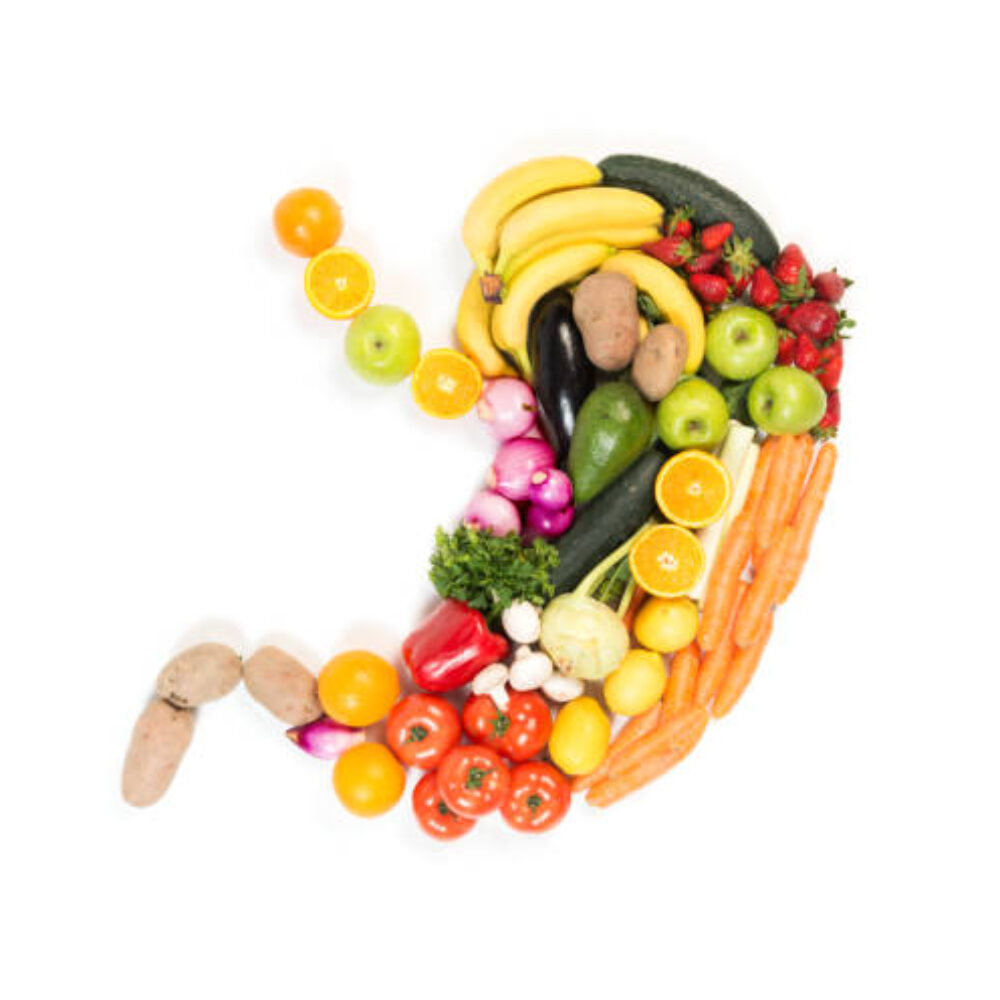Fermented foods have been gaining popularity for their various health benefits, particularly for gut health. But are fermented foods beneficial for those with irritable bowel syndrome (IBS)? Many people with IBS struggle with digestive discomfort, and incorporating the right fermented foods into their diet may help alleviate symptoms.
In this post, we will explore how fermented foods for IBS can support digestion, balance gut bacteria, and potentially reduce bloating and inflammation.
However, not all fermented foods are suitable for everyone, so it’s important to choose wisely and start with small amounts.

What is fermented food?
Fermented food has gone through a natural process where good bacteria, yeast, or fungi break down sugars. This process helps preserve the food and makes it easier to digest. It also increases beneficial probiotics, which support gut health.
Examples of fermented foods are:
The health benefits of fermented food for IBS patients
Fermented food is very beneficial for those who suffer from IBS because these foods contain probiotics, which are good bacteria that can support gut health. These probiotics also help improve digestion, reduce bloating, and balance the gut microbiome. For this reason, these fermented foods may ease IBS symptoms like gas, constipation, and diarrhea.
Some fermented foods for IBS are yogurt, kefir, kimchi, sauerkraut, miso, and kombucha. These foods can help the gut lining and reduce inflammation, which is linked to IBS flare-ups. However, some IBS patients may be sensitive to high-FODMAP fermented foods like kimchi and sauerkraut, which can cause bloating or discomfort.
So, for those individuals, it’s best to start with small amounts and see how their body reacts. They can choose lactose-free or low-FODMAP options like lactose-free yogurt or coconut kefir.
Overall, fermented foods can be a natural way to support gut health and manage IBS symptoms, but it’s important to find what works best for your body.

Some fermented foods for managing IBS symptoms:
Here are some fermented foods that can be helpful for people with Irritable Bowel Syndrome (IBS), along with their benefits:
1. Yogurt: Yogurt is made by fermenting milk with beneficial bacteria such as Lactobacillus and Bifidobacterium. The fermentation process breaks down lactose, making it easier to digest for people with lactose intolerance.
Health benefits:
- Contains probiotics that balance gut bacteria and improve digestion.
- Helps reduce bloating and stomach discomfort.
- Can aid in lactose digestion for those with lactose intolerance.
- Supports the immune system by promoting healthy gut flora.
Note: Choose plain, unsweetened yogurt with live and active cultures to avoid added sugars that may trigger IBS symptoms. Greek yogurt is often a good option as it contains more protein and fewer carbohydrates.
2. Kefir: Kefir is a tangy, fermented milk drink that is similar to yogurt but thinner in texture. It is made by adding kefir grains to milk, which contain a mix of bacteria and yeast.
Health benefits:
- Rich in probiotics that promote healthy digestion.
- Contains less lactose than milk, making it easier to digest for people with IBS.
- Helps reduce bloating and constipation.
- Supports gut microbiome diversity, which is important for overall gut health.
Note: Opt for unsweetened kefir to avoid added sugars that can worsen symptoms.
3. Sauerkraut: Sauerkraut is finely cut cabbage that has been fermented with lactic acid bacteria. It has a tangy, slightly sour taste.
Health benefits:
- Rich in probiotics that can help balance gut bacteria.
- Contains fiber, which can help regulate bowel movements.
- Supports the immune system due to its high vitamin C content.
- Aids digestion by producing beneficial acids that support the gut lining.
Note: Choose raw, unpasteurized sauerkraut, as pasteurization kills beneficial probiotics. Start with small amounts to test tolerance because fiber-rich foods can sometimes cause bloating.
4. Kimchi: Kimchi is a traditional Korean dish made by fermenting cabbage and other vegetables with seasonings like garlic, ginger, and chili.
Health benefits:
- High in probiotics that improve gut health and digestion.
- Contains fiber that supports regular bowel movements.
- Rich in antioxidants and vitamins, which help reduce inflammation.
- Helps improve overall gut microbiome diversity.
Note: Some people with IBS may be sensitive to spicy foods, so it’s best to start with a small portion and choose mild versions of kimchi.
5. Miso: Miso is a fermented soybean paste which commonly used in soups and sauces. It is made by fermenting soybeans with salt and Aspergillus oryzae fungus.
Health benefits:
- Contains probiotics that support gut bacteria and improve digestion.
- Rich in enzymes that help break down food, making digestion easier.
- Helps reduce inflammation in the gut.
- Supports immune health by promoting a balanced gut microbiome.
Note: Choose organic, non-GMO miso without artificial additives. Miso soup is a good way to introduce probiotics into your diet.
6. Tempeh: Tempeh is a firm, fermented soybean product that has a nutty flavor. It is made by fermenting whole soybeans with a mold called Rhizopus oligosporus.
Health benefits:
- Provides probiotics that improve digestion.
- High in protein, making it a great option for vegetarians with IBS.
- Contains fiber that helps regulate bowel movements.
- Supports gut health by promoting beneficial bacteria.
Note: Since tempeh is high in fiber, start with small portions and see how your body reacts.
7. Beet Kvass: Beet kvass is a fermented drink which is made from beets and water. It has a tangy, earthy taste and is rich in probiotics.
Health benefits:
- Supports gut health by providing beneficial probiotics.
- Aids digestion and may help relieve bloating.
- Rich in antioxidants, which help reduce inflammation in the gut.
- May support liver health and detoxification.
Note: Drink in small amounts at first to check for tolerance, as beets can sometimes cause gas.

IBS-friendly one-day meal plan with fermented food:
Here’s an IBS-friendly one-day meal plan with fermented foods to support gut health :
Breakfast: Gut-Healing Yogurt Bowl
What to Eat:
- ½ cup plain Greek yogurt (rich in probiotics)
- ½ banana (good for digestion)
- 1 tablespoon chia seeds (good fiber source)
- 1 teaspoon honey (natural sweetness)
- A few blueberries (low-FODMAP in small amounts)
Why It’s Good: The probiotics in yogurt help balance gut bacteria, while banana and chia seeds provide fiber without being too harsh on digestion.
Mid-Morning Snack: Kefir Smoothie
What to Drink:
- ½ cup unsweetened kefir (probiotic-rich)
- ½ cup almond milk (low-FODMAP alternative to dairy)
- 1 small handful strawberries (antioxidants and gut-friendly fiber)
- 1 teaspoon flaxseeds (supports digestion)
Why It’s Good: Kefir provides a diverse range of probiotics, while flaxseeds support bowel regularity.
Lunch: Tempeh & Miso Quinoa Bowl
What to Eat:
- ½ cup cooked quinoa (easy-to-digest whole grain)
- ½ cup steamed carrots and zucchini (low-FODMAP vegetables)
- ¼ cup grilled tempeh (fermented protein source)
- 1 tablespoon miso dressing (gut-friendly probiotics)
- 1 teaspoon olive oil (reduces inflammation)
Why It’s Good: Tempeh and miso add beneficial probiotics, while quinoa and cooked veggies provide gentle fiber.
Afternoon Snack: Sauerkraut & Rice Cakes
What to Eat:
- 1 plain rice cake (easy on digestion)
- 1 tablespoon hummus (gentle protein source)
- 1 tablespoon sauerkraut (rich in probiotics)
Why It’s Good: Sauerkraut promotes gut balance, while hummus provides protein without causing bloating.
Dinner: Gut-soothing kimchi Soup
What to Eat:
- 1 cup homemade kimchi broth (mild version, not too spicy)
- ½ cup soft tofu (easy to digest)
- ½ cup cooked rice noodles (gluten-free and gentle on the gut)
- 1 teaspoon sesame oil (anti-inflammatory)
- Optional: a few chopped green onions (for flavor)
Why It’s Good: Kimchi’s probiotics support digestion, while rice noodles and tofu provide a comforting, easy-to-digest meal.
Evening Drink: Beet Kvass Tonic
What to Drink:
- ½ cup beet kvass (fermented, probiotic-rich drink)
- ½ cup water (to dilute the taste and avoid stomach upset)
Why It’s Good: Beet kvass supports digestion and detoxification without being too harsh on the gut.
Some Tips for Including Fermented Foods in an IBS Diet:
- Start with small amounts and see how your gut reacts. Then Increase.
- Choose unsweetened and unprocessed versions to avoid artificial additives and excess sugar.
- If you are sensitive to high-fiber foods, introduce them slowly to avoid bloating.
- Drink more water to help your digestive system adjust.
Fermented foods can be a great way to improve digestion and gut health for people with IBS, but it’s important to listen to your body and choose foods that suit your individual needs.
FAQ:
Are fermented foods suitable for everyone?
Fermented foods are commonly beneficial for gut health, but not for everyone. Some people with histamine intolerance, IBS, or SIBO may experience bloating, gas, or discomfort. It’s best to start with small amounts and see how your body reacts.



